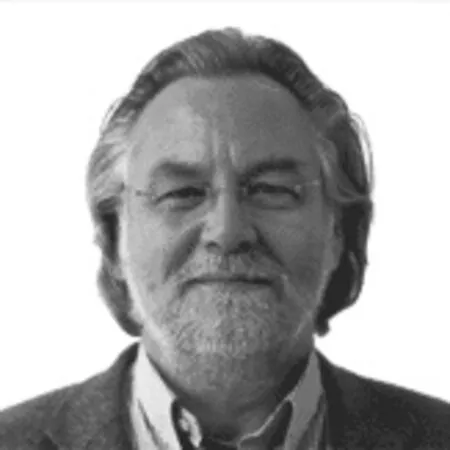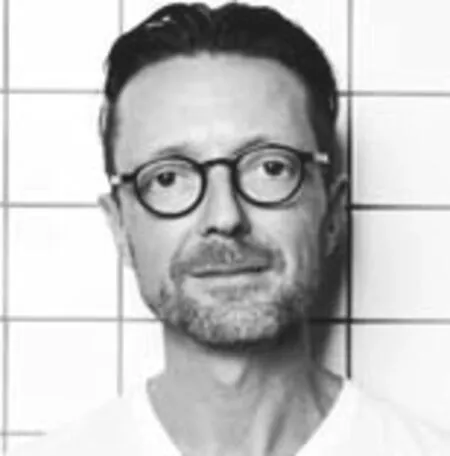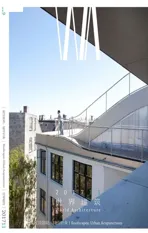改进建筑60秒
2017-12-25栏目主持叶扬
栏目主持:叶扬
改进建筑60秒
栏目主持:叶扬
Sixty Second Idea to Improve Architecture
我们仿效BBC的广播节目“60秒改进世界”(Sixty Second Idea to Improve the World)推出了“改进建筑60秒”栏目,每期将在世界范围内采访两位人物,请他们就建筑、城市、景观、技术等相关问题在60秒的时间里讲出一个或两个有启发性、批判性甚至有争议性的观点。本栏目如实记录了他们的话,采访所拍摄的视频将会出现在我们的相关网页上。所述观点只代表嘉宾本人,与本杂志立场无关。□

鲁安东
南京大学建筑与城市规划学院教授
LU Andong
Professor, School of Architecture and Urban Planning, Nanjing University
当代建筑学正面临着巨大的转型和挑战,同时我们也处在一个新的人文主义时代的入口。从文艺复兴到现代主义,我们逐步确立起了一种具有普遍性的人的价值、建筑学中的人的价值,而新的数字媒介等等条件使我们正前所未有地接近了人的个人化的、主体的情感、记忆、意义,以及与环境的互动。这一方面要求我们重新去认识空间的规律,特别是空间中与人的主体有关的规律;另一方面,我们需要拓展建筑学的工具、方法,甚至思维方式,我们需要更好地与其他学科协同来获得更加精确、更加细腻、更加能支持人与环境互动的设计方法,让人重新回到空间的中心。我相信在这个新的人文主义时代,我们会需要、也将迎来一种新的更好的人文主义建筑学。□

张昕楠
天津大学建筑学院副教授
ZHANG Xinnan
Associate Professor, School of Architecture, Tianjin University
“意匠”的建筑教育
建筑设计是一个内应外合的过程:所谓内,是指将个人之于生活、艺术、历史等理论学科知识转化为建筑设计与分析的技能,将概念向空间转化的设计过程;所谓外,指对环境真实的分析、对建造真实的理解和对建筑学本体真实的认识。基于这种理解,建筑师应该是一个之于条件、资源、社会关系的优秀协调者和创造者,而不是一个简单的绘图匠。
今天的建筑教育早已不再局限于传授“手法”的“巧言令色”,在注重培养学生掌握空间组织和空间形式设计的技巧及形式语言之外,更注重培养学生的设计思维的训练,珍视学生的敏感观察,引导同学对于本我之“仁”的表达。
如果说“手法”的传授使学生掌握建筑师作为“匠”之层面的建筑设计的基本操作能力,而由人本之“仁”所引发的“意”便成为了定义建筑师身份的关键。而日语中的“意匠”一词,其实是建筑设计及其理论的意思。
以这一思考审视建筑教育,不难发现——建筑教育一方面需要完成其作为基本的对于建筑师的职业教育;另一方面,更有机会完成以建筑为视角和媒介的人本教育。
总之,对于中国仅有90余年历史的建筑教育来讲,它仍是一个年轻的学科,当代社会的进步和疾速发展也不再要求建筑教育快速地生产设计人员,我想未来,我们将有机会培养出更多有智识的“意匠”。□

古拙——梁思成笔下的古建之美
作者:梁思成
编者:林洙
出版:中国青年出版社,2016
暑期快到了,我的建筑系学生纷纷议论理想旅行目的地, 却几乎没有一个学生提倡去考察中国古建筑。
现今的建筑教育普遍侧重设计和应用,有些建筑学院甚至把建筑归类为应用艺术(apply arts)。能够及时启蒙学生的建筑案例,大部分都属于现代主义及后期的外国案例。久而久之,在建筑学生的眼中,令他们趋之若鹜的建筑作品,都在外国。
现在中国迅速发展了数十年,但亦彷佛到了需要寻根的阶段。我国历史源远流长,文化博大精深。究竟,我们能从过去窥探到多少的未来呢?
中国青年出版社推出了几本关于梁思成的书籍,但我却被《古拙》精美的设计吸引了。以往关于营造法式的书籍,一般都会以古建筑的类别来分成章节(如古桥、古塔、等等),所以阅读时,感觉乏味。《古拙》打破了这种编辑风格,编辑把《古拙》设计成为梁思成的笔记本,章节分为十二回、一个月代表一回。每一回都节录了梁思成关于营造法式的文章、图纸、照片及草图。编辑以时叙介绍不同朝代的建筑典范,润饰了阅读的节奏,希望读者能亲历梁思成和林徽因攀山涉水、探访山明水秀古代遗迹的旅程。所以它更像一本游记,增加了阅读趣味性。
内容当然是令人感动;几十年前在战火连天的中国,交通、摄影、绘图,每一件都不是容易的事。《古拙》收录了大量由当年《中国营造学社》所测绘的图纸和拍摄的相片,对一本A5的书籍而言,十分难得。
比起前辈们,年轻建筑师更需要寻根。停留、回望,是为了走更远的路。□(撰文:阮文韬,元新建成建筑事务有限公司创办人)

建筑细部
The Architectural Detail
作者:爱德华·R·福特/Edward R. Ford
译者:胡迪、隋心、陈世光、何为、李博勰
出版:江苏凤凰科学技术出版社,2015
近年来,尽管建筑细部在各类建筑文章以及众多建筑师阐述自己作品中多有提及。但是如何理解建筑细部仍然困扰着我们。爱德华·R·福特所著《建筑细部》一书以独特的视角解读建筑细部,给了我们更多的思考空间。
关于建筑细部,我们可以提出很多问题。建筑细部是不是功能的要求?建筑细部是不是建筑立面上小尺度的装饰设计?建筑细部设计是不是构造设计?建筑细部设计与建筑整体设计之间的关系是什么?而实际上,建筑细部可以说就是“建筑”本身。密斯说过“建筑开始于两块砖被仔细地连接在一起。”这句话不仅指出了建筑的基本要素包括材料、构造、建造,而且“仔细的连接”就是在描述建筑细部。建筑细部是建筑整体不可分割的一部分,是构造的明确表达,是建造的合理体现。建筑细部所承载的是设计师的设计意向、建筑背后的审美取向、材料工艺技术的发展。因此,建筑细部是每一位从事与建筑有任何相关联的工作的人都应该理解的内容。
在本书中,作者并没有着力定义细部的概念,也没有技术性的探讨什么样的构造方式会产生什么样的细部。本书只是从5个概述——作为抽象化的细部、作为母体的细部、作为构造表达的细部、作为节点的细部、自主或颠覆性的细部——来阐述建筑细部。而建筑细部究竟是什么?每一位读者读过之后应该都会有自己的结论。这大概也是本书的最大意义。□(撰文:马欣,北方工业大学建筑与艺术学院副教授)

建筑设计理论:从设计的影响出发
Teoria del Progetto Architettonico: Dai disegni agli effetti
作者:Alessandro Armando, Giovanni Durbiano
出版:Carocci Editore, 2017
Alessandro Armando and Giovanni Durbiano's book Teoria del Progetto Architettonico is a refreshing(though indeed demanding,with its 500 pages of dense text)counter-argument to the dominant disciplinary narrative that reads built objects as the direct result of a design intention. In this narrative, the trajectory from the architect's drafting table to building site and then to built architecture is a linear one; where it is not, it is considered a failure of the designer's intentions, which external forces are accountable for, and thus a failure the designer endures helplessly.That architects produce drawings and not buildings is a known and fairly accepted fact; but the distance between the drawing and the building is, more often than not, overlooked as something of little interest to the discipline, something external to the values that are the architect's own and that are inscribed within the project,and thus the building.
Armando and Durbiano propose to reconsider the weight of the symbolic exchange that such narrative foregrounds (from the architect's head to drawing to building), and attempt to construct a scientific framing for the analysis of the project of architecture as a socio-technical object that is shaped, deviated and implemented,and that is modified a thousand times by a thousand different directions.Drawing on Actor-Network Theory,the authors describe the process of modifications-within-the-real-world that the project goes through as a necessary process, allowing for the enlargement of the collective retaining decisional power and, consequently,for an incremental enhancement of the project itself. During its journey from the architect's head to the building site, the project encounters a number of irruptions that are as much a part of it as is its relatively brief permanence on the drawing board. The more the irruptions, the larger the collective,the better the chances for the project to act as a complex social tool for transformation.
The main concern of the authors is to make visible the measurability of the transformative power that defines the project of architecture as a technical and social object. In a moment in which disciplinary discourse rests either on narratives of authoriality, portraying architects as sole carriers of those values necessary to envision the future, or on narratives of scarcity, downplaying the role of design as weak practice subject to unforeseeable contingencies – and thus reducing the scope of the issues it sets out to address, this book opens to a pragmatic interpretation of the discipline through the introduction of a diachronic dimension to architectural praxis. Architects are at once producers and actors embedded in a real world of continuous exchange; such exchange can be measured, and by measuring it, it is possible to project its effects into the future. While the future promised by narratives of authoriality is at once enticing and obscure, as its connection to the present only exists in the architect's head, and the future promised by narratives of scarcity is a direct consequence of present conditions and virtually unchangeable by designers, this book points to a way for architects to master the bureaucratic dimension of the project of architecture and thus contribute to the construction of a pragmatically operable promise of the future – something that disciplinary discourse is in dire need of.□(撰文/Text: 维莱利亚·弗德利吉,都灵理工大学建筑学博士、建筑师/Valeria Federighi, Architect, PHD., Politecnico di Torino)

古斯塔夫·安布罗西尼
Gustavo Ambrosini
B.1965,都灵,意大利
都灵理工大学博士
都灵理工大学副教授
内戈齐奥·布吕合伙人建筑事务所创始合伙人
B.1965, Torino, Italy
PHD., Politecnico di Torino
Associate Professor, Politecnico di Torino
Founding Partner, Negozio Blu
Architetti Associati Office

桑德拉·巴克利
Sandra Barclay
B.1967,利马,秘鲁
迭戈波塔利斯大学硕士
巴克利&克鲁斯建筑事务所创始合伙人
B.1967, Lima, Peru
Master degree, Diego Portales University
Founding Partner, Barclay &Crousse Architecture
简·皮埃尔·克鲁斯
Jean Pierre Crousse
B.1963,利马,秘鲁
迭戈波塔利斯大学硕士
巴克利&克鲁斯建筑事务所创始合伙人
B.1963, Lima, Peru
Master degree, Diego Portales University
Founding Partner, Barclay &Crousse Architecture

爱德华多·卡达瓦尔
Eduardo Cadaval
B.1975,墨西哥城,墨西哥哈佛大学设计学院硕士
卡达瓦尔&索拉-莫拉莱斯建筑事务所创始合伙人
B.1975, Mexico City, Mexico
MArch., Harvard Graduate School of Design
Founding Partner, Cadaval & Solà-Morales Architects
克拉拉·索拉-莫拉莱斯
Clara Solà-Morales
B.1975,巴塞罗那,西班牙
哈佛大学设计学院硕士
卡达瓦尔&索拉-莫拉莱斯建筑事务所创始合伙人
B.1975, Barcelona, Spain
MArch Harvard Graduate School of Design
Founding Partner, Cadaval & Solà-Morales Architects

圭多·卡莱加里
Guido Callegari
B.1968,都灵,意大利
都灵理工大学博士
都灵理工大学副教授
创始合伙人,生态可持续建筑发起人
B. 1968, Torino, Italy
PHD., Politecnico di Torino
Associate Professor, Politecnico di Torino
Founding partner, start up be-eco for sustainable construction

斯泰恩·科克斯
Stijn Cockx
B.1981,登德尔蒙德,比利时工学硕士
LOW 建筑事务所创始合伙人
B. 1981, Dendermonde, Belgium Master of Science in Engineering Founding Partner , LOW architecten

汤姆·辛德里克斯
Tom Hindryckx
B.1981,于克勒,比利时工学硕士
LOW 建筑事务所创始合伙人
B.1981, Ukkel, Belgium
Master of Science in Engineering
Founding Partner, LOW architecten

沃尔克·哈尔巴赫
Volker Halbach
B.1969,格罗瑙,德国
迈阿密大学硕士
blauraum Architekten 建筑设计有限公司创始合伙人
B.1969, Gronau, Germany
Master, University of Miami
Founding Partner, blauraum
Architekten GmbH

原田真宏
Masahiro Harada
B.1973,静岡,日本
芝浦工业大学硕士
富士山建筑工作室主持建筑师芝浦工业大学教授
B.1973, Shizuoka, Japan
March, Shibaura Institute of
Technology
Principal Architect, Mount Fuji Architects Studio
Professor, Shibaura Institute of Technology
原田麻魚
Mao Harada
B.1976,神奈川,日本芝浦工业大学学士
富士山建筑工作室CEO东北大学讲师
B.1976, Kanagawa, Japan
Bachelor of Architecture, Shibaura Institute of Technology
CEO, Mount Fuji Architects Studio Lecturer, Tohoku University

荷雅丽
Alexandra Harrer
B.1974,维也纳,奥地利
宾西法尼亚大学东亚语言与文明学博士
清华大学助教
B.1974, Vienna, Austria
PHD. in East Asian Languages and
Civilizations, University of Pennsylvania Assistant Professor, Tsinghua University

李路珂
LI Luke
B.1980,湖南,中国
清华大学博士
清华大学讲师
B.1980, Hunan, China
PHD., Tsinghua University
Lecturer, Tsinghua University

黄鹤
HUANG He
B.1991,贵州,中国重庆大学硕士
B.1991, Guizhou, China
MArch., Chongqing University

郭大元(音)
Daewon Kwak
B.1978,釜山,韩国
贝尔拉格学院硕士
Design Guild主持建筑师
B.1978, Busan, Korea
MArch., Berlage Institute
Principal, Design Guild

贝恩德·罗伊特尔
Bernd Leuters
B.1953,罗森达尔-奥斯特维克,德国
注册结构工程师
Archplan有限公司创始合伙人、经理
B.1953, Rosendahl-Osterwick,
Germany
Dipl. Ing. in structural engineering,Founding Partner and Manager of Archplan GmbH

乔基姆·塞内克
Joachim Seinecke
B.1949,明斯特,德国
注册建筑设计师
Archplan有限公司创始合伙人
B. 1949, Münster, Germany
Dipl.Ing Architectural Design
Founding Partner and Member of Partnership of Archplan GmbH

维尼·马斯
Winy Maas
B.1959,斯海恩德尔,荷兰代尔夫特理工大学双硕士
MVRDV主持建筑师、主管
B. 1959, Schijndel, the Netherlands Two masters, Delft University of
Technology
Principle Architect, Director,
MVRDV

雅各布·凡·里斯
Jacob Van Rijs
B.1964,阿姆斯特丹,荷兰代尔夫特理工大学荣誉硕士MVRDV主持建筑师、主管
B.1964, Amsterdam, the
Netherlands
Master of Architecture with Honours, Delft University of Technology
Principal Architect, Director,MVRDV

娜塔莉·德·佛里斯
Nathalie de Vries
B.1965,阿平厄丹,荷兰代尔夫特理工大学荣誉硕士MVRDV主持建筑师、主管
B. 1965, Appingedam, the
Netherlands
Master of Architecture with Honours, Delft University of Technology
Principal Architect, Director,MVRDV

慕竞仪
MU jingyi
B.1987,哈尔滨,中国
谢菲尔德大学博士研究生
哈尔滨工业大学博士研究生
B.1987, Harbin, China
PHD. Candidate, University of Sheffield
PHD. Candidate, Harbin Institute of Technology

康健
KANG Jian
B.1964,山西, 中国剑桥大学博士
谢菲尔德大学教授
哈尔滨工业大学教授
B.1964, Harbin, China
PHD., Cambridge University
Professor, University of Sheffield Professor, Harbin Institute of
Technology

张姗姗
ZHANG Shanshan
B.1959, 哈尔滨,中国哈尔滨工业大学博士哈尔滨工业大学教授
B.1959, Harbin, China
PHD., Harbin Institute of
Technology
Professor, Harbin Institute of Technology

希格露恩·穆萨
Sigrun Musa
B.1959,杜塞尔多夫,德国
应用科技大学硕士
INDEX 建筑事务所创始合伙人
B.1959, Düsseldorf,Germany MArch, University of Applied Sciences
Founding Partner, INDEX
Architekten

乌利齐·埃克斯纳
Ulrich Exner
B.1956,梅舍德,德国
应用科技大学硕士
锡根大学教授
INDEX 建筑事务所创始合伙人
B. 1956, Meschede, Germany MArch, University of Applied Sciences
Professor, University Siegen Founding Partner, INDEX
Architekten

朱利安·德·斯梅德
Julien De Smedt
B,1975,布鲁塞尔,比利时巴特莱特建筑学院硕士
JDS 建筑事务所创始负责人
B.1975, Brussels, Belgium
Master,The Bartlett School of Architecture
Founder & Director, JDS Architects

蒂姆·舍恩贝里
Timm Schönberg
B.1971,汉堡,德国
亚琛工业大学学士
克劳斯-舍恩贝里建筑事务所主持建筑师
B.1971, Hamburg, Germany
Dipl.Ing.Arch, RWTH Aachen
University
Practice Principal, Kraus Schönberg Architects

詹姆斯·索恩
James Soane
B.1966,伦敦,英国剑桥大学硕士
Project Orange主管
B.1966, London, UK
MArch., Cambridge University Director, Project Orange

克里斯托弗·阿什
Christopher Ash
B. 1966,伦敦,英国剑桥大学硕士
Project Orange主管
B. 1966, London, UK
MArch., Cambridge University Director, Project Orange
